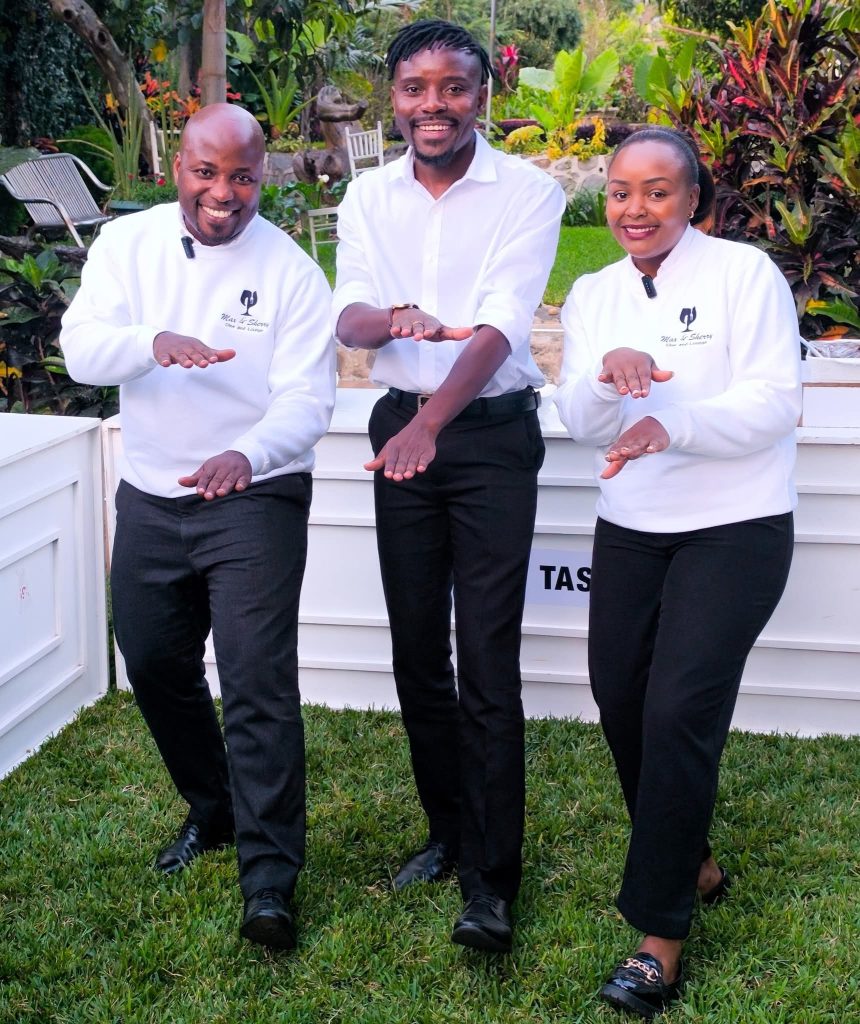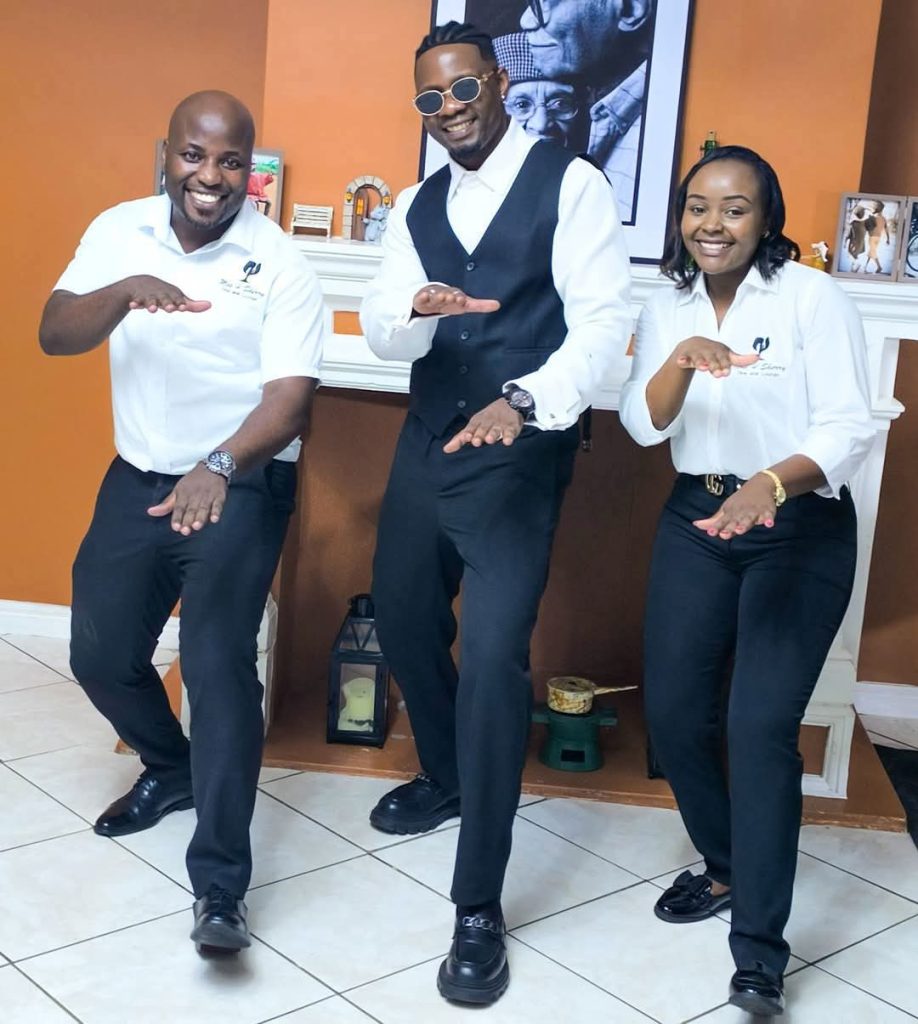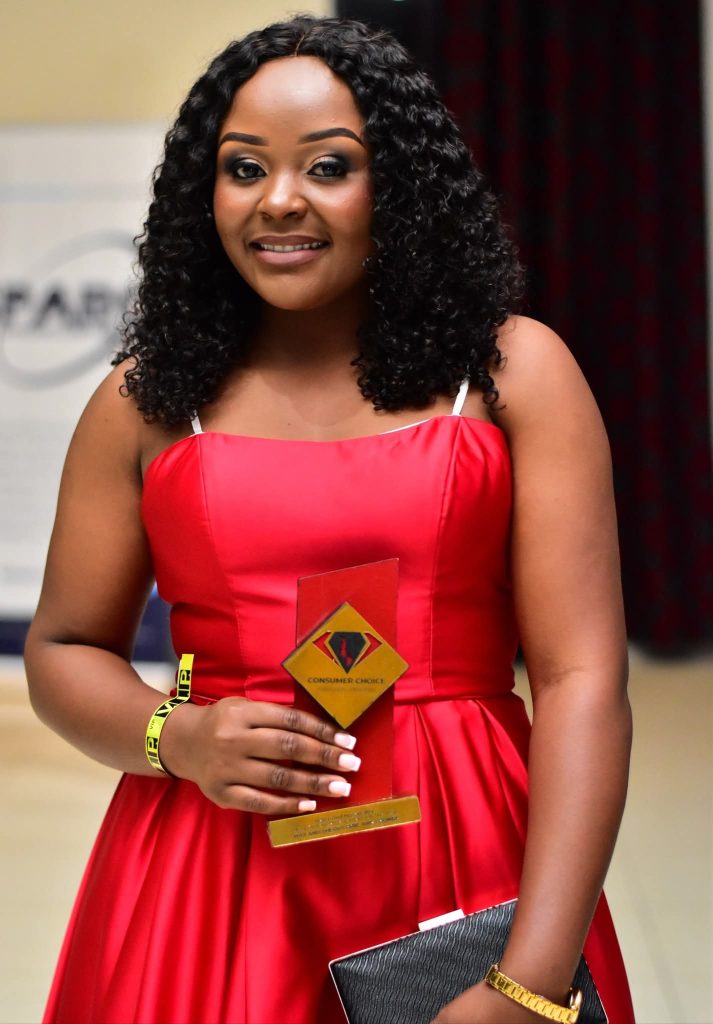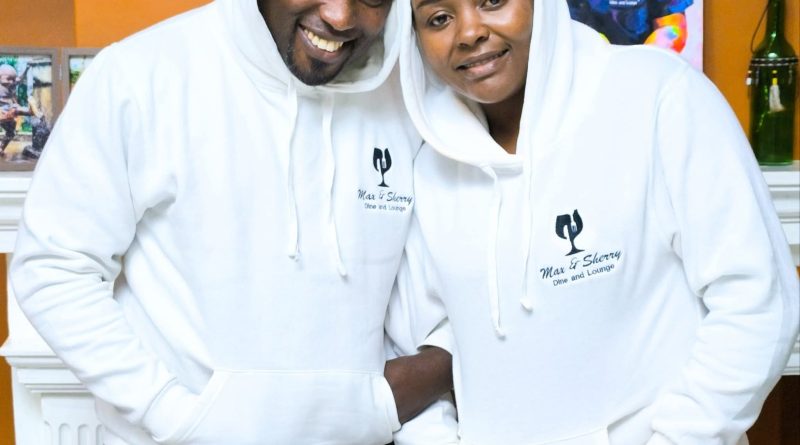HOPE MEZUWA BANDA’S PASSION AND PURPOSE
When passion meets purpose, powerful stories are born. In this exclusive interview, Esther Misheck Nyanja speaks with Hope Mezuwa Banda, a development worker turned entrepreneur, whose journey from humble beginnings to running a successful restaurant is truly inspiring. He’s also known for his surprise appreciation acts, which uplift others and encourage people to believe in themselves.

Hope and Tamika are rising steadily
Tell us a brief history about yourself.
My name is Hope Mezuwa Banda, a development practitioner and entrepreneur. I am a husband to Tamika and a father to three children, Kuzgani, Tazirwa, and Tavwana. I am also the son of Reverend Mezuwa Banda and Madam Mezuwa Banda.
What’s your academic story?
I went to several primary schools due to the nature of my father’s work. Being a reverend, he travelled a lot, especially in the Northern Region and occasionally in the Southern Region when he was studying, so my primary education was quite diverse. Because of this, I won’t go into too much detail about it.
For secondary school, I attended Robert Laws Secondary School and later Phwezi Boys Secondary School. From there, I was selected to pursue my first degree at the Chancellor College, where I earned a Bachelor of Education in Humanities. This was between 2005 and 2009. Between 2010 and 2012, I pursued and obtained a Master of Arts in Development Studies.
After that, I enrolled in several professional training programs. I studied at the University of Cape Town, the University of Pretoria and completed various other research-related courses. Most of these were designed to enhance my skills in research and development work.
Rarely do we see young men starting businesses right after college. What pushed you into business?
My mother has always been a small-scale businesswoman. As a young boy growing up in her home, I was introduced to money and business quite early, around the age of 10 to 12. She trusted us with small business responsibilities, often asking us to go and sell (masamba) vegetables. I clearly remember that while living in Rumphi, we used to sell vegetables at Msika wa Njala. We also sold freezes, mbajira, and samoosa at the Mzuzu Depot and Mzuzu Stadium. So, the idea of selling to earn money started a long time ago.

Awards galore: Brains behind Max & Sherry, Hope and Tamika
When I went to school, because our parents strongly believed in the power of education, I didn’t stop doing business. I remember during my college days, I would go to Chinamwali in Zomba to buy kaunjika (secondhand clothes), bring them back to campus, and sell them. I also used to order Airtel Zachangu scratch cards and resell them. Business has always been a part of me, though it remained secondary to my main focus, which was education.
After completing school, I focused more on formal employment. I wouldn’t say I was fully into business at that time. I worked with several organizations, including the United Nations, government departments, parastatals, and also in the private sector. Over time, I realized that I had a passion for cooking and running a restaurant, something that stemmed from my mother’s love for cooking. I had been inspired by her from a young age. So, in 2022, I decided to follow that passion and pursue a career in the food and hospitality industry.
You enrolled at the Malawi Institute of Tourism (MIT) even though you already had a master’s degree. Take us through that decision.
Yes, I went back to school and enrolled at the Malawi Institute of Tourism (MIT), but it wasn’t the first thing I did. Initially, I sat down with my wife Tamika, and we agreed to start a restaurant. Tamika had already developed baking skills while we were together, so we began cooking and baking from home.
When we finally opened the restaurant called Max and Sherry, the name derived from my father’s name, Reverend Maxwell, and Tamika’s Father, Sherrington. I felt it was important to gain formal knowledge about food preparation. I wanted to be a professional in the field, so I enrolled at MIT to learn the basics. Although I didn’t complete the full course, I acquired the knowledge I needed to support the growth of the restaurant.
What are the challenges that you face in the restaurant business that you operate? What are the successes?
If you do what everyone else is doing in the restaurant business in Malawi, you’ll quickly find it to be very competitive and difficult. There are hundreds, if not thousands, of restaurants already operating. So, if you’re planning to open a new one, you must be intentional about offering something different. If you simply copy what others are doing, people will have no reason to come to your restaurant.
Running a restaurant is tough. It depends on many factors, especially production, which is heavily influenced by the availability and cost of raw materials. Prices for ingredients change frequently, most often going up. Occasionally, prices do go down, though people rarely talk about that. But we in the business notice it. Still, the general trend is upward, and when prices rise sharply, it affects us greatly.
Food is a sensitive commodity. Food is life. If I’m preparing something that someone is going to consume, I have to ensure that it not only tastes good but also nourishes them. You can’t serve food that leaves your customer feeling unwell; it’s a huge responsibility. It’s not like selling timber; if the timber is of poor quality, you might get away with it. But food? You’re dealing with people’s health, and that’s serious, and if not careful, you may even be sued.

Hope and Tamika: Sky won’t even be the limit
That said, it’s a profitable business if you think smart and build a strong reputation. Once your name is established and you maintain quality, you can make money in this industry.
How would you have loved things to change for the better in your business?
We want to grow. In the next five years, we want to have a presence across Malawi. In the next ten years, we aim to expand beyond our borders. It may seem like a far-fetched dream, but it is possible.
The Tourism sector is one of the government’s ATM strategy – Agriculture, Tourism, and Mining. How can Malawi better benefit from tourism?
Tourism players need government support, but they also need to support the government in return. For example, government support could come in the form of exposure. If I only operate within Malawi, I may never dream bigger. But if I’m exposed to what’s happening in South Africa, I’ll be inspired to improve.
Many people have great ideas but lack capital. The tourism and hospitality sector requires substantial investment. Setting up a proper restaurant that meets tourist standards is expensive.
Also, restaurant owners should set high standards. Most restaurants in Malawi only serve chips and chicken or rice and beef. But what will attract a tourist from the U.S. or Europe? Not rice and beef. Tourists want well-prepared, authentic local food.
How can Malawi compete with countries like Zimbabwe, Botswana, Tanzania, South Africa, Zambia, and Kenya in the tourism sector?
Tourists want to experience something local, but well-prepared. We often get requests for local dishes like batala (butterfish) or chambo. We need to focus on raising standards, presentation, and quality in how we serve our local cuisine to meet international expectations.
Does Malawi have the potential to compete globally?
Yes, Malawi has great potential. There are already major players competing internationally, such as Amaryllis and Sunbird Hotels. These institutions are equipped, exposed, and capable. They participate in tourism expos and showcase Malawi’s offerings. Given the right support and exposure, others can follow suit.
You’ve become known for surprising people with appreciation. Tell us more about that.
Two main things inspired this idea. First of all, I grew up in a culture where people share beautiful stories about someone after they have passed. I love funerals not because I enjoy death, but because of the heartfelt speeches made during these ceremonies. Especially where I come from in Nkhata Bay, among the Tonga people, there is a unique practice called “mulire.” It is a space where someone is invited to mourn out loud, and whatever they say during that moment cannot be held against them. No one will accuse you of saying something wrong. This tradition gives people the freedom to speak, and speak well, and because the whole audience is listening, they usually do it beautifully.

Family: The Mezuwa Bandas
What I love most about it is how people bring out unknown stories about the deceased, stories that surprise even close friends and family. For example, you might hear that the person used to pay school fees for the needy or helped the community in quiet but powerful ways. Then you’ll hear people regretfully say, “Had we known, we would have supported and celebrated them while they were alive.” Many leave funerals feeling they missed an opportunity to appreciate someone who truly deserved it. That made me wonder as to what exactly is stopping us from expressing such appreciation while someone is still alive? Is there a law against it?
Why must we wait until someone is gone to praise them, to tell their children and relatives how good that person was? Often, parents do good things in silence, without ever telling their families, not out of secrecy, but simply from humility or goodwill. Sadly, their children only come to know these acts during funeral speeches. That realization is painful, especially for the children, who might feel they never got the chance to say “thank you.”
That’s what inspired us to create a platform that gives people a chance to appreciate each other while they are still alive. But we didn’t want it to be boring or predictable, like someone knocking on your door and saying, “Odi, we’ve come with people to appreciate you.” If the person being appreciated is already aware of what’s coming, it loses the magic. Imagine telling someone on Thursday that we’re coming on Monday with a surprise, by then, they will have guessed who the message is from or what it might be about. That’s not exciting.
So we decided to make the experience dramatic and genuinely surprising. The idea is to catch someone off guard with beautiful news that brightens their day, whether they were having a bad one or a good one. That way, the message truly becomes the highlight of their day.
Our approach was also inspired by how things used to be in the past, when people had pen pals and received postcards or letters in the mail. There was a special kind of joy in receiving a card or letter, especially if it came from a loved one abroad. People would go to the post office and come back home visibly excited, proudly holding their envelopes. Even if it was a funeral letter, it still meant something. If it were from someone dear, you would find a quiet place to read and re-read it. That sense of personal connection is what we wanted to revive.

The couple captured here with popular musician, Patience Namadingo ‘The Doc’
Today, technology makes it easy to send messages, even generating messages using tools like ChatGPT, but many of those don’t come from the heart. They’re copied and pasted, lacking real feeling. That’s why in our project, we don’t accept voice notes or text messages. We always interview the person who wants to surprise their loved one. We ask meaningful questions so they can speak from the heart, saying in their own words what they feel about the person they want to celebrate.
Would you tell us one of the most exciting surprises you experienced?
There are so many memorable surprises we’ve done, but two stand out as the most touching for me. One of them involved an anonymous request; we went to Chichiri Prison to surprise a man. It was an incredibly emotional experience. This man was known to be a good person, someone with a history of kindness and integrity. Unfortunately, he made one mistake, just one, and that mistake landed him in prison for the next 12 years. His entire story is filled with goodness, yet one poor decision changed his life completely. That moved me. It reminded me how a single mistake can cost someone everything.
The other story, equally powerful and perhaps even more inspiring, involved a 16-year-old girl named Marvelous. She has taken on the responsibility of constructing a house on behalf of her mother, who is away trying to earn a living. Marvelous is not only managing the building project but is also caring for her younger siblings. At just 16, she’s supervising construction, handling resources wisely, and working incredibly hard. It’s remarkable, especially in this age of social media, where many teenagers are focused on platforms like TikTok. Her determination and maturity deeply inspired us.
Both stories serve as powerful reminders that you can be a good person, but one mistake can drastically alter your life; and on the other hand, even at a young age, you can rise to great responsibility and show extraordinary strength.
Has the surprise initiative helped your business?
Yes, it has boosted our business significantly. People are drawn to the uniqueness of the idea. Those who book us for surprises often discover our restaurant, and vice versa. The surprises are paid services too, so they’re both impactful and financially sustainable.

The couple interacts with people of different backgrounds and social status
What inspiration do you get from these surprises?
The uniqueness of each story is what inspires us. Every story is different and carries its power. For instance, on June 18th 2025, we honored the late Flora Seleman, who tragically passed away alongside the former Vice President, Saulos Chilima, in a plane crash. She left behind a truly beautiful and moving story. It was unlike anything we had ever done before, and that uniqueness made it special. Every time we carry out a surprise, we learn something new about life.
We benefit a lot from these stories, even the ones we don’t share publicly. There are many we haven’t posted on our page. Some people prefer to keep their moments private, and we respect that. But even then, we gain insight and a deep appreciation for what people go through. Often, we’re reminded just how hard people are working behind the scenes, and that in itself is inspiring.
You do business as a couple, and from the look of things, it’s one of the most successful partnerships, which is very rare. What’s your secret?
It’s a conscious choice we’ve made. First and foremost, we are a married couple before we are business partners. Love comes first. Without love, we could still be business partners, but we wouldn’t thrive. Love is the foundation that keeps everything else going.
We must first understand each other as husband and wife before we can work together effectively as business partners. That means accepting each other’s weaknesses and being willing to learn not only from each other, but also from others. People can correct us, advise us, and we welcome that because it helps us grow.
Most importantly, we are clear about our purpose in this business. What affects me affects Tamika. When I earn money, it’s not just for me, it’s to support our children, to save for our family vacations, and to build something lasting together. I don’t work just to meet my personal needs; I work for our shared future. That shared vision keeps us motivated because we know we are doing this for our family and the generations that will follow. Commitment to our family is what drives everything we do.
Youths in Malawi believe in white collar jobs; what would be your message to people holding degrees or diplomas waiting for an opportunity to get employed?
Many young people in Malawi are still waiting for white-collar jobs, but others are interested in business. However, capital remains a major challenge. My message to the youth is simple: use what you have. Discover your inner strengths and talents. Be humble. Sometimes you don’t need to start big; you can start by volunteering. Say, “I don’t need to be paid; I just want to help, whether it’s cleaning, running errands, or buying food for staff.” That’s how relationships are built. While doing those small tasks, one day your boss might turn around and ask, “What qualifications do you have?” You might respond, “I have a degree.” And that could open unexpected doors, like being offered an opportunity to manage a certain company, for instance, the boss could say we want to open a radio station in Nsanje, and would want you to go and work there.

Hope: Youths in Malawi should not wait for white collar jobs
Let’s say you’re a journalist and YONECO is coming to your community for an outreach event. Why not take a notebook, write a story about the event, and submit it to a newspaper like The Nation with your byline? That article becomes your calling card. You can then present it to YONECO as evidence of your skills. Do you think they wouldn’t consider you? They would because bosses value visibility, and your initiative provides that. That’s free marketing for both you and the organization.
You also have a Facebook page. How are you using it? Sadly, many young people use it to insult others or waste time on petty content. Why not use it to appreciate people? Take a photo of someone doing good work, maybe a local boss or leader, and write a short, positive post about them. One day, that person might remember you for that gesture. You’d be surprised what opportunities come from simply being seen doing good. So yes, being jobless is hard, but don’t make earning money your first fight; your first fight should be to break through. Once you do that, money will follow. Unfortunately, many youths turn to alcohol out of frustration, but even if capital were suddenly made available to them, they wouldn’t use it wisely in that state. However, if you’re already hustling and then you receive capital, chances are you’ll use it well and grow from there.
Your last word?
Thank you to this publication for the opportunity to share my story. But more importantly, I want to express my deep appreciation for my wife, Tamika. I’m here representing both of us. Every idea I’ve ever brought forward has first passed through her. No idea has ever been implemented without her approval. Some ideas have even been shelved quietly, and while the public may never hear about them, Tamika was still part of the decision-making process.

Hope says his wife Tamika has been very supportive
She has been there for me, sharpening our vision, contributing ideas, and helping ensure we succeed together. If you’ve heard of “Max and Sherry,” then you’ll understand the beauty of building something as a couple. I know that if I were doing this on my own, it wouldn’t have come this far. It’s because of her. She made a huge sacrifice by resigning from her permanent job just to join me in this business, and I don’t take that for granted.


